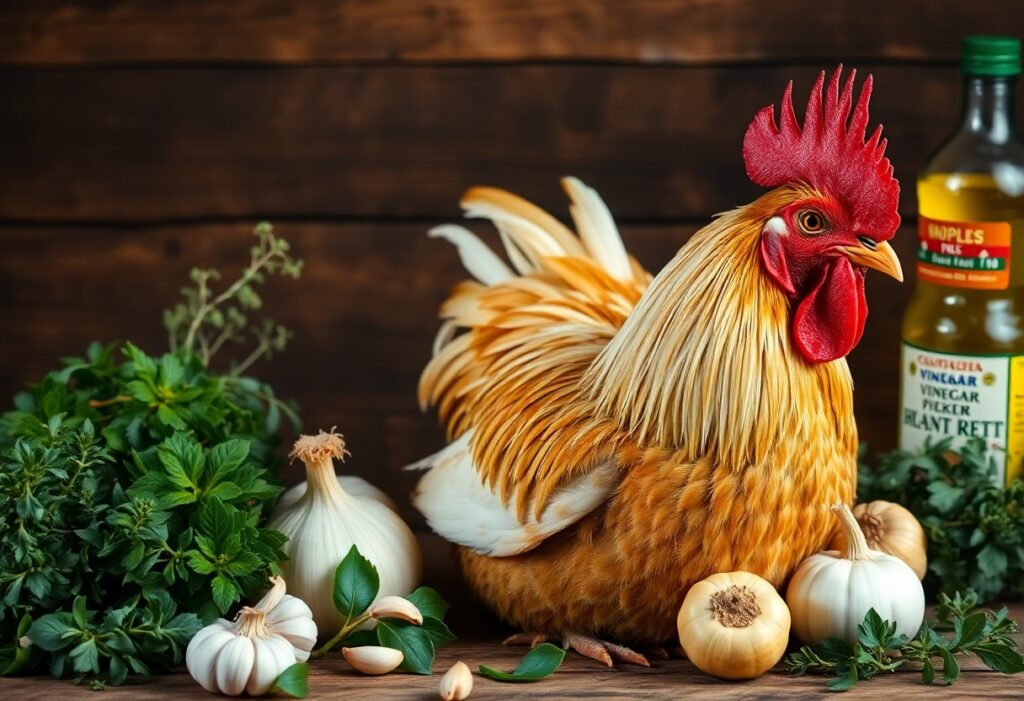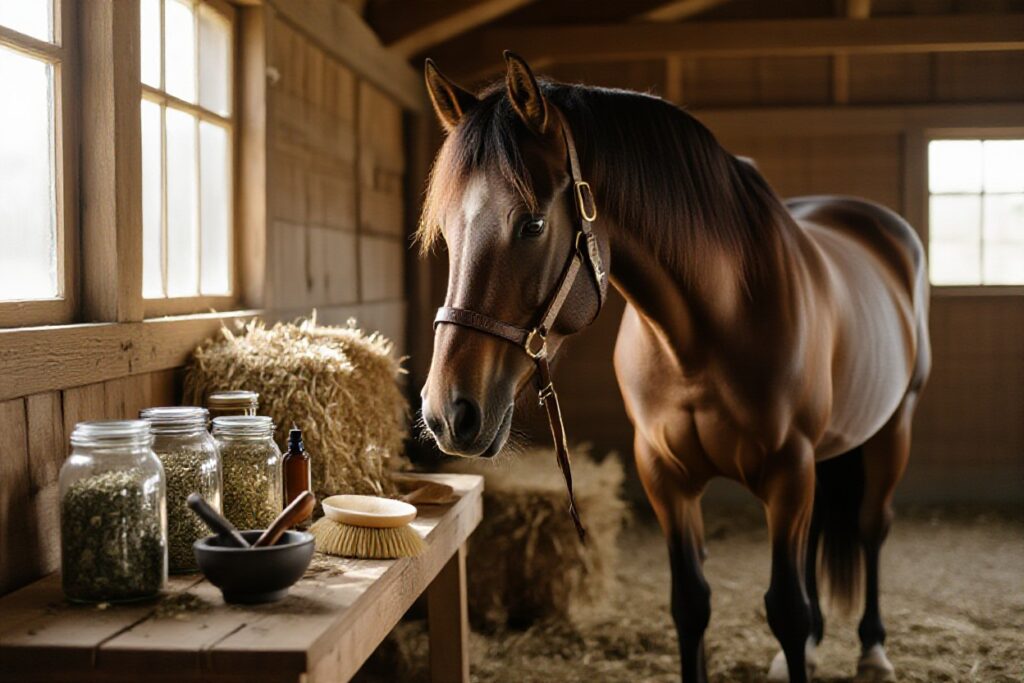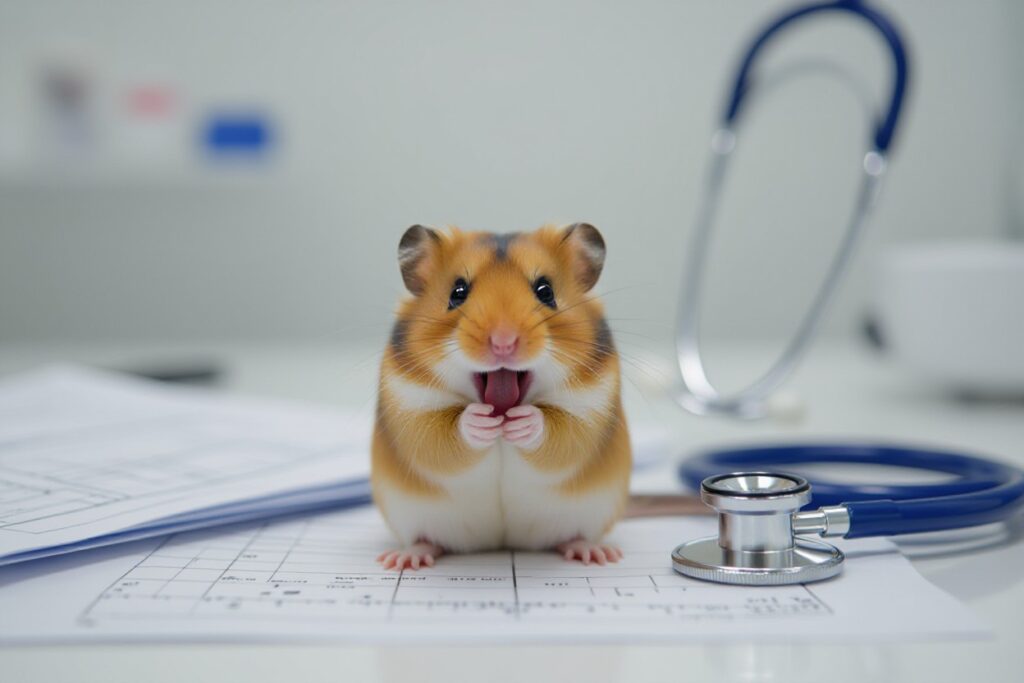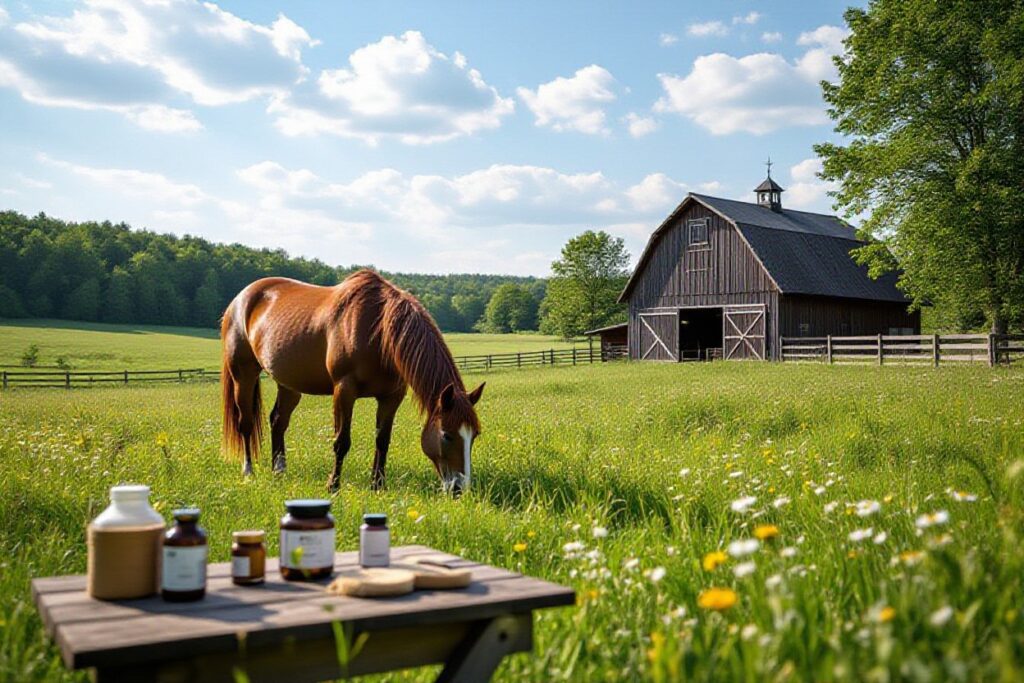With the right knowledge, you can effectively manage your rooster’s health using natural remedies. This guide will equip you with valuable insights into common health issues roosters face and how you can treat them using safe and effective herbal solutions. By integrating these remedies into your care routine, you can enhance your rooster’s well-being and potentially avoid the use of harsh chemicals. Let’s explore practical solutions to common ailments that may affect your feathered friend.
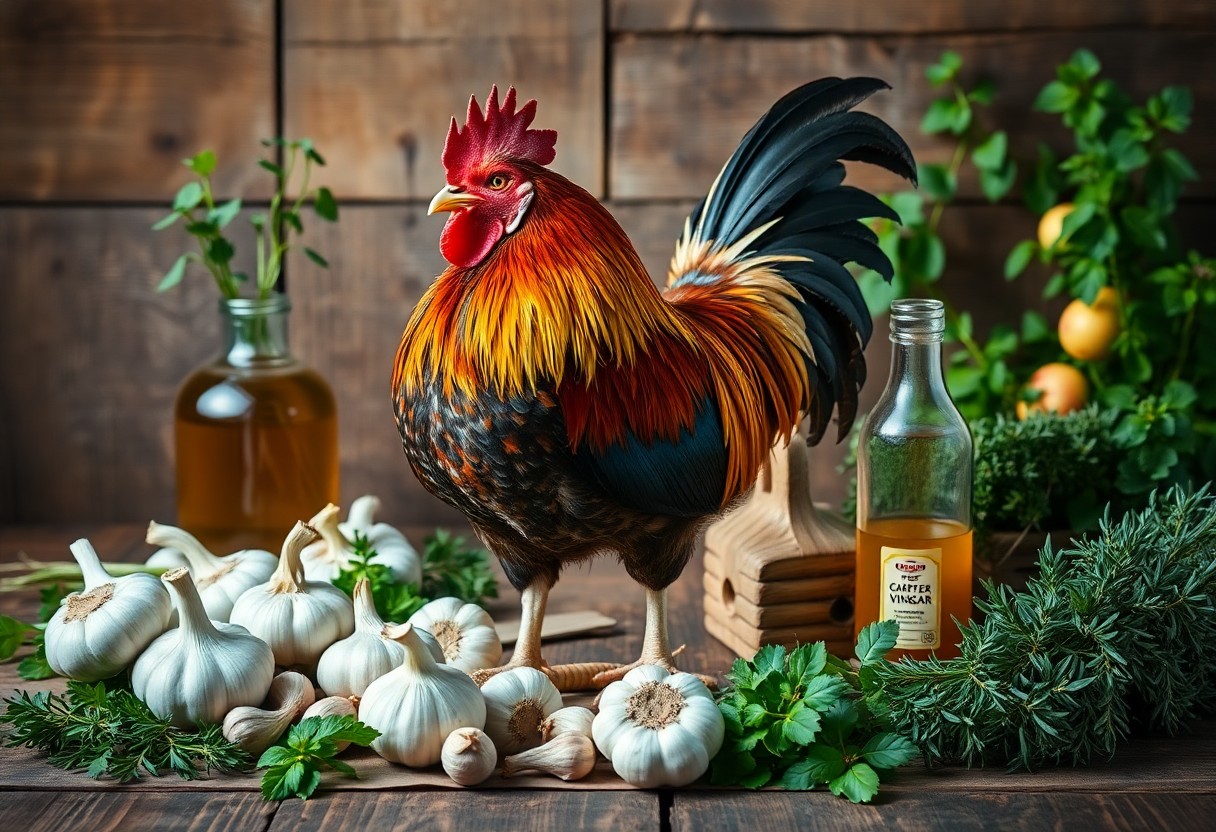
Key Takeaways:
- Natural remedies can effectively address common rooster health issues, such as respiratory infections, mites, and digestive problems. Ingredients like garlic, apple cider vinegar, and herbs can support overall health and immunity in roosters.
- Regular maintenance practices, like good hygiene and proper diet, can reduce the incidence of health problems and help in preventing infestations or infections from taking hold.
- Consulting a veterinarian for diagnosis is imperative before starting any natural remedy, as some health problems may require professional intervention in addition to home treatments.
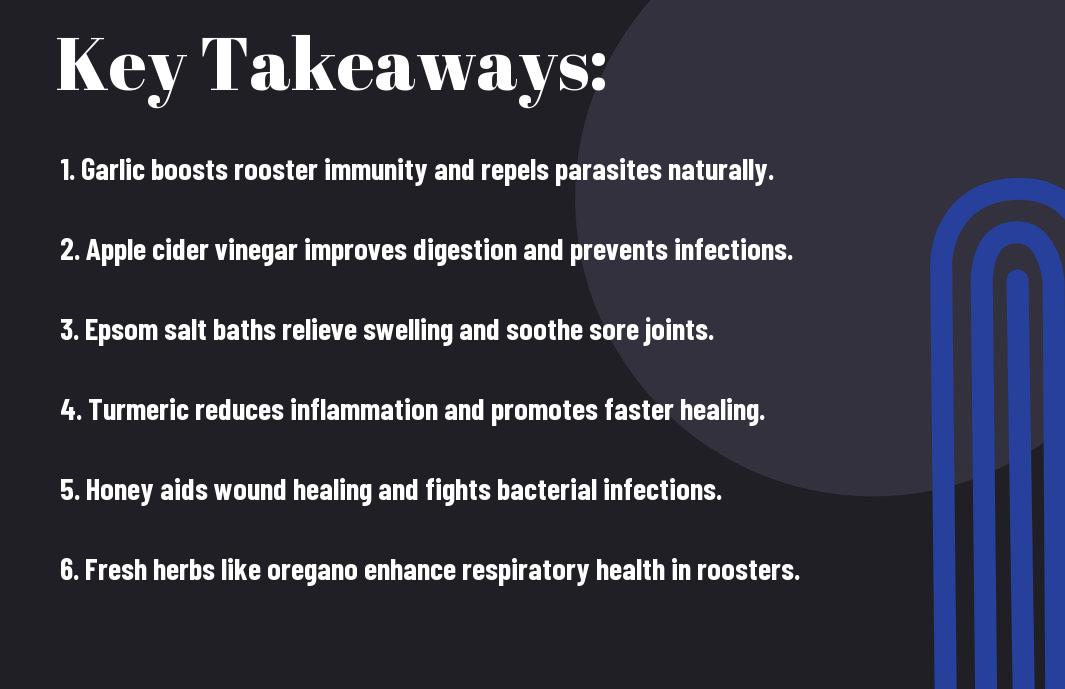
Understanding Common Rooster Health Issues
The health of your rooster is imperative for maintaining a vibrant flock. Roosters can face various health issues that may affect their overall well-being, behavior, and productivity. By understanding these common problems, you can take proactive steps to prevent and treat health issues, ensuring your rooster remains healthy and active.
Respiratory Problems
Between damp conditions and crowded living environments, roosters are susceptible to respiratory problems. Symptoms such as coughing, nasal discharge, and labored breathing can indicate a serious health concern. It’s important to provide good ventilation, avoid dust, and keep your coop clean to minimize these risks.
Digestive Disorders
Common digestive disorders in roosters can include diarrhea, impacted crops, and gastrointestinal infections. These issues may arise from poor diet, abrupt changes in feeding, or contaminated food or water. As a responsible owner, it’s important to monitor your rooster’s droppings and appetite, and provide a balanced diet rich in nutrients to support proper digestion.
Disorders such as impacted crops usually manifest as a swelling in the neck and can lead to serious complications if left untreated. Providing adequate grit and preventing your roosters from overeating can help prevent these issues. Ensuring access to clean, fresh water and utilizing natural remedies like apple cider vinegar may promote better digestion. Always consult a veterinarian for persistent problems to keep your rooster healthy.
Natural Remedies for Respiratory Issues
Some common respiratory issues in roosters can be effectively managed using natural remedies. By employing these methods, you can help improve your rooster’s health without depending too heavily on medications. Addressing respiratory problems promptly can lead to a quicker recovery and a healthier flock overall.
Herbal Treatments
After identifying respiratory symptoms in your rooster, consider incorporating herbal treatments such as thyme, oregano, and eucalyptus into their diet. These herbs contain natural antiseptic and anti-inflammatory properties that can support respiratory health, helping to ease congestion and soothe irritation.
Environmental Adjustments
Respiratory issues in your rooster can often be alleviated through simple changes in their environment. Make sure your bird’s living area is well-ventilated to reduce humidity and allow for fresh air circulation. Additionally, ensure you regularly clean the coop to minimize dust, mold, and harmful bacteria that can contribute to respiratory problems.
Remedies like maintaining clean bedding and avoiding excessive moisture can significantly reduce respiratory distress in your rooster. Try to keep their living area free of strong odors from chemicals, as these can exacerbate symptoms. Providing ample space and ensuring they have access to fresh, dry air can make a significant difference in their overall respiratory health and comfort. By incorporating these adjustments, you help create a healthy living environment that supports your rooster’s well-being.
Natural Remedies for Digestive Disorders
For many roosters, digestive disorders can disrupt their health and well-being. To help your rooster achieve better digestive health, consider implementing natural remedies that focus on improving his overall dietary habits and gut flora. These methods are effective and gentle, offering a holistic approach to supporting your rooster’s digestive system.
Dietary Changes
The foundation of improving your rooster’s digestive health lies in the food you provide. Incorporate a variety of fresh fruits and vegetables, such as pumpkin, spinach, and berries, to promote better digestion. Additionally, ensure that your rooster has access to high-quality grains and protein sources. This balanced diet can significantly reduce digestive issues and enhance overall health.
Probiotic Solutions
Solutions such as probiotics can be a game changer for your rooster’s digestive system. By introducing good bacteria into his gut, you can help balance digestive health and prevent issues like diarrhea or constipation. Probiotics are available in various forms, including powder or liquid, and can be easily added to your rooster’s feed or water.
Another important aspect of using probiotics is that they can help to restore your rooster’s natural gut flora after periods of stress or illness. This can be particularly beneficial if your rooster has recently been on antibiotics, as these medications can disrupt his digestive balance. Look for probiotics specifically designed for poultry, which contain live cultures that support gut health and enhance nutrient absorption, ultimately leading to a happier and healthier rooster.
Preventative Measures for Rooster Health
To ensure your roosters remain healthy, it is important to adopt preventative measures. Establishing a consistent care routine, maintaining clean living environments, and monitoring for early signs of illness can help you effectively manage your flock’s health. Incorporating natural remedies alongside these practices can further enhance your roosters’ overall well-being.
Proper Nutrition
Below, providing a balanced diet rich in protein, vitamins, and minerals is vital for your roosters’ health. Grain-based feed supplemented with greens, insects, and calcium sources like crushed oyster shells will support their growth and strong immune systems. Regularly assessing your feed’s quality can make a notable difference in their vitality.
Stress Reduction Techniques
Measures such as providing a calm environment, adequate space, and social interaction can significantly reduce stress in your roosters. By minimizing loud noises and ensuring they are not overcrowded, you’ll create a soothing atmosphere conducive to health and happiness.
Further, engaging in routine activities like allowing them to roam freely and providing enrichments such as perches or scratching areas can be beneficial. Introducing calming techniques, such as gentle handling and maintaining a regular schedule, will also promote a sense of security. Keep in mind, a low-stress environment directly influences your roosters’ mental health and helps prevent physical ailments resulting from stress. Investing time in their comfort can yield positive results in their productivity and overall well-being.
Essential Vitamins and Minerals for Roosters
Once again, ensuring that your roosters receive the right balance of vitamins and minerals is vital for their overall health and well-being. Essential nutrients play significant roles in maintaining optimal immunity, promoting reproductive health, and ensuring proper growth. A well-rounded diet, supplemented with the necessary vitamins and minerals, can help you prevent common health issues, leading to a more productive and thriving flock.
Key Nutritional Elements
One of the key elements to focus on includes vitamins A, D, and E, as well as minerals like calcium, phosphorus, and zinc. These nutrients contribute to your roosters’ bone health, reproductive performance, and feather condition. Providing a balanced diet is necessary to keep your flock vibrant and healthy.
Sources of Natural Supplements
One can explore various natural sources to boost the vitamin and mineral intake of your roosters. Incorporating items like leafy greens, seeds, and eggshells into their diet can enhance their nutritional benefits. Additionally, fermented feeds can also improve digestibility and nutrient absorption, ensuring your roosters receive what they need.
The variety of natural supplements available opens up a world of options for you to enhance your roosters’ diet. Leafy greens, such as kale and spinach, are rich in vitamins and can be easily integrated into their meals. Eggshells are an excellent source of calcium, necessary for *strong eggshells* and overall skeletal health. For increases in healthy gut bacteria, consider adding fermented feeds, as they help with digestion and nutrient absorption. Providing these natural sources will lead to happier, healthier roosters, ultimately improving the productivity of your flock.
Observing and Monitoring Rooster Health
After bringing a rooster into your flock, consistent observation and monitoring of its health are necessary. Regular checks will allow you to identify any changes in behavior, appetite, or physical appearance that may indicate potential health issues. By being proactive, you can ensure your rooster remains healthy and lively. Make it a habit to spend time with your birds, as this will foster a bond and provide you with valuable insight into their overall well-being.
Recognizing Symptoms
Along with routine monitoring, it’s important to familiarize yourself with typical rooster behavior and health signs. Look for symptoms such as lethargy, changes in vocalization, decreased food intake, or abnormalities in feces. By being attentive to these signs, you can quickly identify any problems before they escalate into serious issues.
When to Seek Veterinary Help
An important aspect of responsible rooster care is knowing when to consult a veterinarian. Should you notice your rooster displaying severe symptoms such as difficulty breathing, persistent lethargy, or significant weight loss, it is necessary to seek help.
Seek veterinary assistance if your rooster exhibits severe symptoms that persist for more than a day, especially difficulty breathing or severe lethargy. Additionally, if your rooster has not eaten or drank for over 24 hours or shows signs of uncontrollable bleeding or swelling, you should act immediately. Early intervention can often lead to a better outcome, as many health issues, if caught early, are more easily treatable. Always keep your vet’s contact information handy for emergencies.
To wrap up
As a reminder, addressing common rooster health problems through natural remedies can be both effective and safe for maintaining your flock’s wellbeing. Whether you’re dealing with respiratory issues, parasites, or nutritional deficiencies, you can implement simple, natural solutions that promote healthier birds. By staying informed and proactive, you can ensure your roosters thrive in a strong and vibrant environment. Your commitment to their health will undoubtedly lead to a more productive and harmonious poultry experience.
FAQ
Q: What are some common health problems that roosters face?
A: Roosters can encounter a variety of health issues including respiratory infections, mites and parasites, injuries from pecking, and reproductive problems. Respiratory infections may show symptoms like coughing or nasal discharge, while parasites can lead to lethargy and decreased egg production in hens. Keeping an eye on their behavior and physical condition is important for early detection and treatment.
Q: What natural remedies can I use to treat respiratory infections in my rooster?
A: For respiratory infections, one effective natural remedy is steam inhalation. You can create a steamy environment by placing your rooster in a bathroom with hot water running, allowing him to breathe in the moist air. Additionally, adding apple cider vinegar to their water can help boost their immune system. Using herbs such as thyme and oregano can also provide respiratory support, as they have natural antibacterial properties.
Q: How can I manage mites and parasites naturally in my rooster’s environment?
A: To manage mites and parasites, you can use diatomaceous earth in and around your rooster’s living area. This natural powder can help eliminate pests by dehydrating them. Additionally, incorporating garlic into your rooster’s diet can strengthen their immune system and deter parasites. Regular cleaning of their housing and ensuring proper ventilation are also important steps in preventing infestations.
